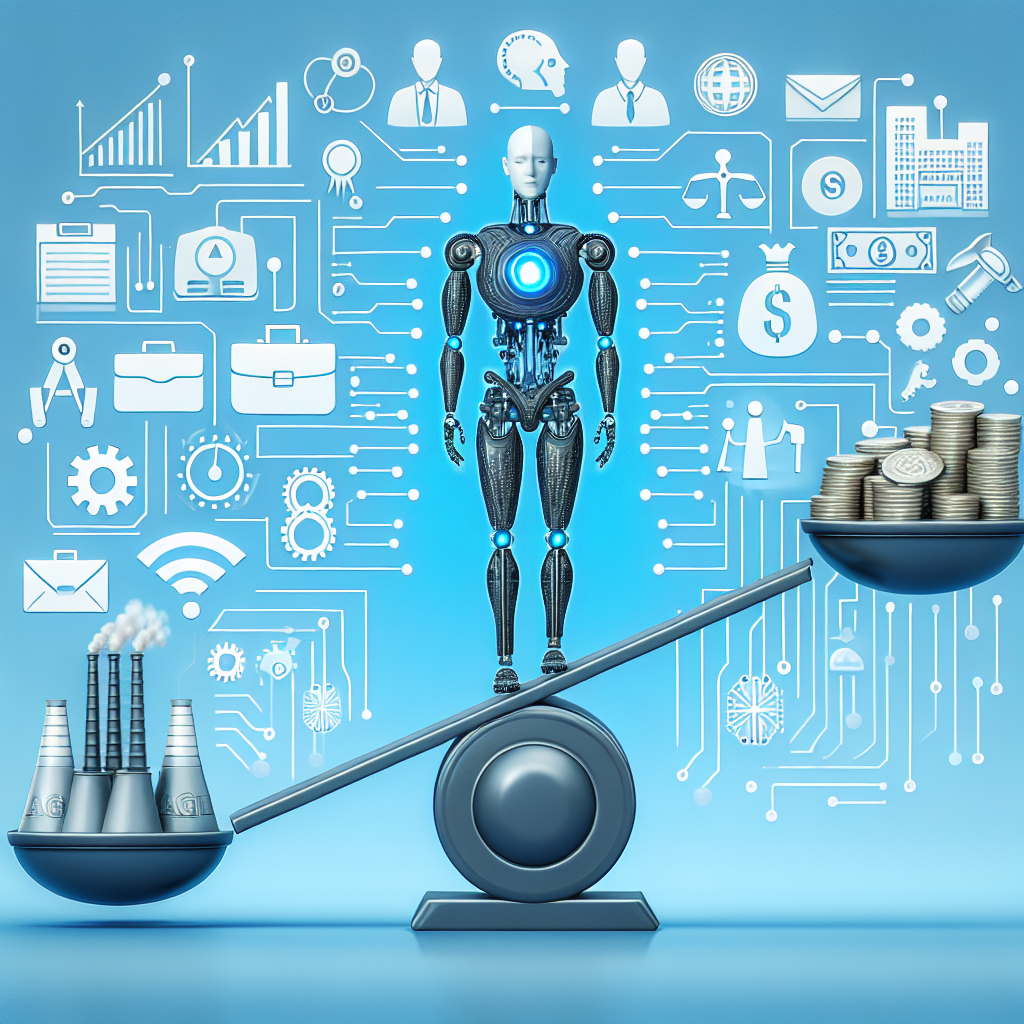The Implications of AGI on Employment and the Economy
Artificial General Intelligence (AGI) refers to a type of artificial intelligence that possesses the ability to understand, learn, and apply knowledge across a wide range of tasks and domains. Unlike narrow AI, which is designed for specific tasks, AGI has the potential to perform human-level cognitive functions. The development of AGI has the potential to revolutionize many aspects of society, including the economy and employment landscape. In this article, we will explore the implications of AGI on employment and the economy.
Impact on Employment
One of the most pressing concerns surrounding the development of AGI is its potential impact on employment. As AGI systems become more advanced, there is a possibility that they could automate a wide range of jobs currently performed by humans. This could lead to widespread job displacement and unemployment in many industries.
One of the key areas of concern is the impact of AGI on white-collar jobs. Many tasks that are currently performed by professionals, such as lawyers, doctors, and accountants, could potentially be automated by AGI systems. This could lead to a significant reduction in the demand for these types of jobs, as AGI systems could perform the same tasks more quickly and efficiently.
In addition to white-collar jobs, AGI also has the potential to impact blue-collar jobs. Automation has already had a significant impact on industries such as manufacturing, where robots have replaced human workers in many tasks. With the development of AGI, even more jobs in industries such as transportation, construction, and agriculture could be at risk of automation.
Overall, the impact of AGI on employment is likely to be significant. While some new jobs may be created as a result of the development of AGI, the overall trend is likely to be towards job displacement and unemployment. This could lead to widespread social and economic upheaval, as workers are forced to adapt to a rapidly changing job market.
Impact on the Economy
The impact of AGI on the economy is also likely to be significant. As automation becomes more widespread, there is a possibility that productivity could increase significantly, leading to economic growth. However, this growth may not be evenly distributed, as the benefits of automation are likely to accrue to a small number of individuals and companies.
One of the key challenges posed by the development of AGI is income inequality. As automation displaces workers in many industries, there is a risk that a small number of individuals and companies could capture a disproportionate share of the benefits of automation. This could lead to a widening wealth gap between the rich and the poor, as those who own and control AGI systems reap the rewards of increased productivity.
Another key challenge is the potential impact of AGI on the labor market. As jobs are automated, many workers may find themselves without employment or with reduced job prospects. This could lead to a decline in consumer spending, as workers have less disposable income to spend on goods and services. This could in turn lead to a slowdown in economic growth, as companies cut back on production in response to lower demand.
Overall, the development of AGI is likely to have far-reaching implications for the economy. While automation has the potential to increase productivity and economic growth, it also poses significant challenges in terms of income inequality and the distribution of benefits.
FAQs
Q: Will AGI lead to widespread unemployment?
A: The development of AGI has the potential to automate a wide range of jobs, leading to job displacement and unemployment in many industries. While some new jobs may be created as a result of the development of AGI, the overall trend is likely to be towards job displacement.
Q: How will AGI impact income inequality?
A: The development of AGI poses a significant risk of widening income inequality. As automation displaces workers in many industries, there is a risk that a small number of individuals and companies could capture a disproportionate share of the benefits of automation, leading to a widening wealth gap between the rich and the poor.
Q: What are the potential benefits of AGI for the economy?
A: The development of AGI has the potential to increase productivity and economic growth. Automation could lead to cost savings for businesses, increased efficiency, and the development of new products and services. However, these benefits may not be evenly distributed, and there are significant challenges in terms of income inequality and job displacement.
Q: How can society prepare for the impact of AGI on employment and the economy?
A: Society must take proactive steps to prepare for the impact of AGI on employment and the economy. This could include investing in education and training programs to help workers transition to new industries, implementing policies to ensure that the benefits of automation are distributed more equitably, and developing strategies to address income inequality and job displacement.
In conclusion, the development of AGI has the potential to have far-reaching implications for employment and the economy. While automation has the potential to increase productivity and economic growth, it also poses significant challenges in terms of income inequality and job displacement. Society must take proactive steps to prepare for these challenges and ensure that the benefits of automation are distributed more equitably.

